We’ve all been there at some point. You're working on a presentation, designing a website, writing an article, or crafting the perfect Instagram post, and you find the perfect image online. It fits your vision exactly, except for one issue: it’s copyrighted.
You start wondering, “Is there a way to remove copyright from the image?" Or maybe even worse, “Can I just edit it and use it anyway?”
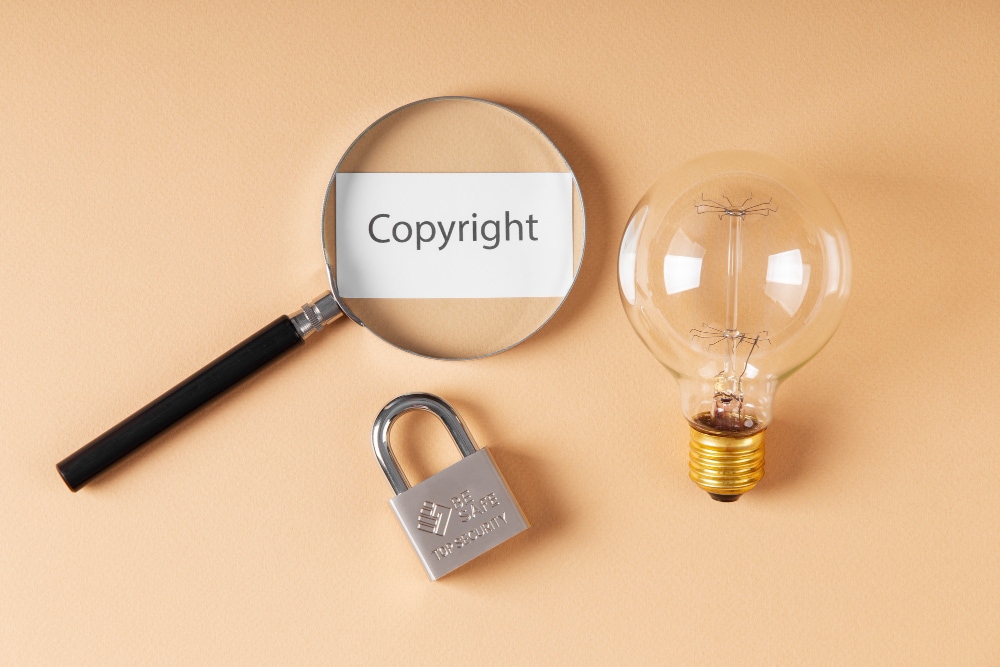
The truth is, while the internet makes images feel like they’re up for grabs, most of them are protected by copyright laws, and that protection isn’t just symbolic. It gives creators legal ownership and control over how their work is used. Ignoring those protections can lead to takedown notices, fines, and even lawsuits in more serious cases.
In this article, you’re not going to learn how to wipe watermarks or bypass copyright protections illegally. Instead, this article will walk you through the legal and ethical ways to work with copyrighted photos—whether you're a student, small business owner, designer, or just someone who wants to stay on the right side of the law.
So here’s what copyright really means, why it matters, and most importantly, how to “remove” copyright from photos legally so you can create without stepping on anyone’s toes.
In this article
Part 1: Understand All About Copyright on Online Images
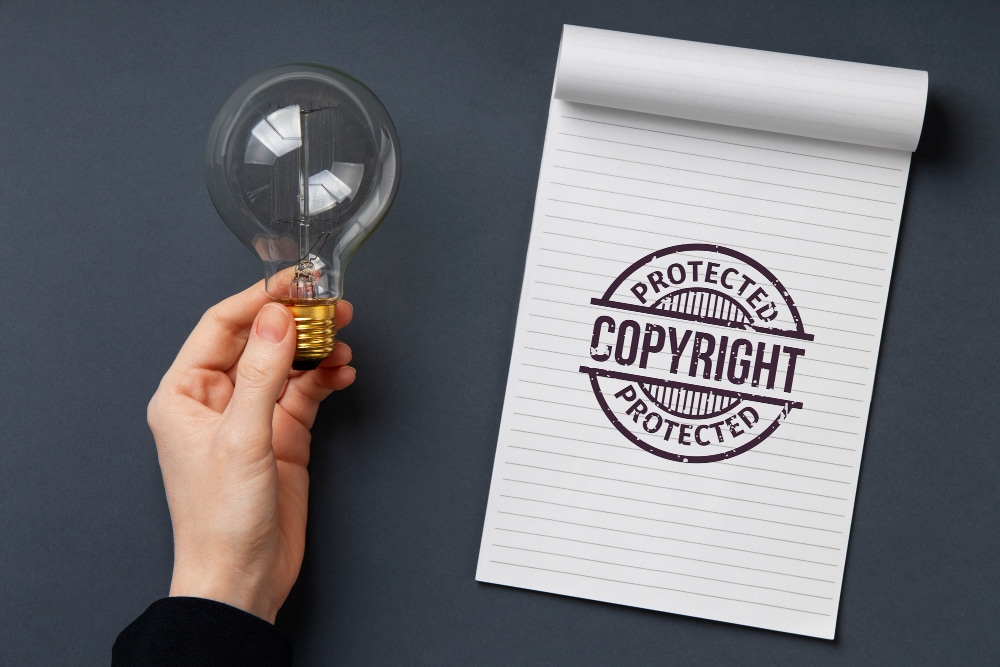
Copyright is a legal right that automatically protects original works of authorship the moment they’re created. This includes photographs, illustrations, and digital art.
That means as soon as someone takes a photo or creates an image, they own the rights to how it's used, shared, or modified. It doesn’t need to be registered or stamped to be protected.
So, if you're wondering how to remove a copyright from a picture, it's not the same as simply erasing a watermark.
How Can You Tell If An Image Is Copyrighted?
It’s wise to check the copyright status before looking for how to remove copyrights from an image. Here are a few simple ways to do so:
- Look for a watermark or credit line.This usually indicates that the creator wants recognition and likely retains rights over the image.
- Use reverse image search toolslike Google Images or TinEye to trace where the image comes from and see if it's linked to a photographer, stock website, or portfolio.
- Check the source website.If you found the image on a stock photo site like Shutterstock, Getty Images, or Adobe Stock, it’s almost definitely copyrighted.
- Look for licensing terms.Some images may be available under Creative Commons licenses, which allow use under specific conditions (like giving credit or not using it commercially).
Don’t assume an image is free to use just because it’s on Google or Pinterest. That’s one of the most common misconceptions out there.
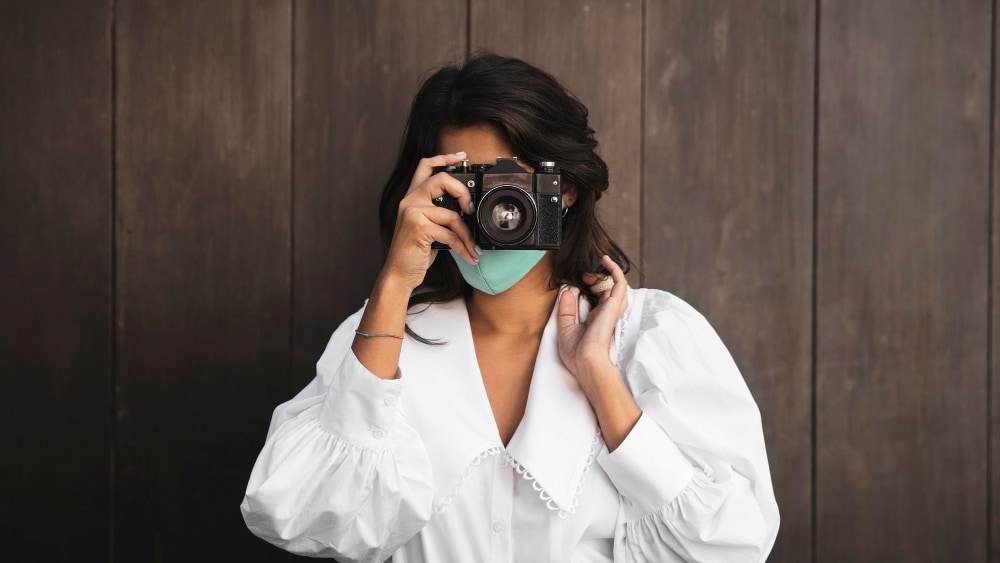
What Happens If You Use a Copyrighted Image Without Permission?
- A DMCA takedown notice (your content could be removed from platforms like Instagram, YouTube, or your website),
- Fines or legal fees if the case goes to court,
- In some cases, your reputation could take a hit, especially for businesses or influencers who rely on public trust.
If you didn’t create an image, don’t use it blindly. If you're tempted to remove copyright from a random image, don’t. It’s always safer and more respectful to understand the rights behind a photo before you hit download.
Part 2: Legal & Ethical Ways to Use Images Without Copyright Issues
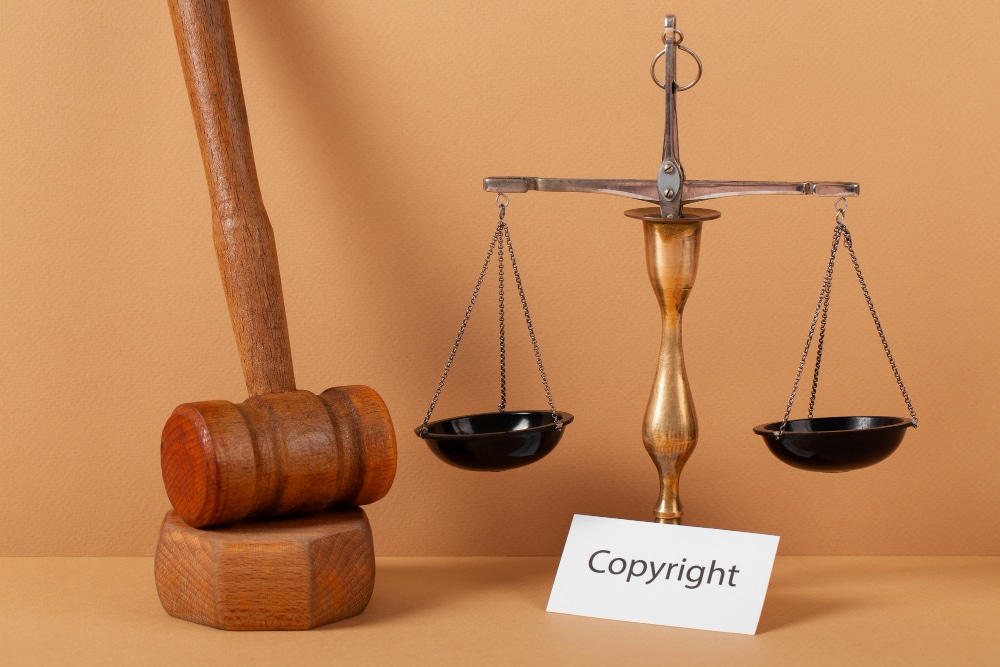
So now that you know removing copyright from photos is serious business, the big question is: What can you do if you still want to use that image without getting into legal trouble?
There are legitimate ways to use images without violating copyright. Here are some legal and ethical options:
- Use public domain images
- Get a license or ask for permission
- Use editing tools that include licensedstock libraries
- Understand “fair use” (but be careful)
Part 3: How to Remove Copyright from Images with AI Tools (For Licensed & Permitted Use Only)
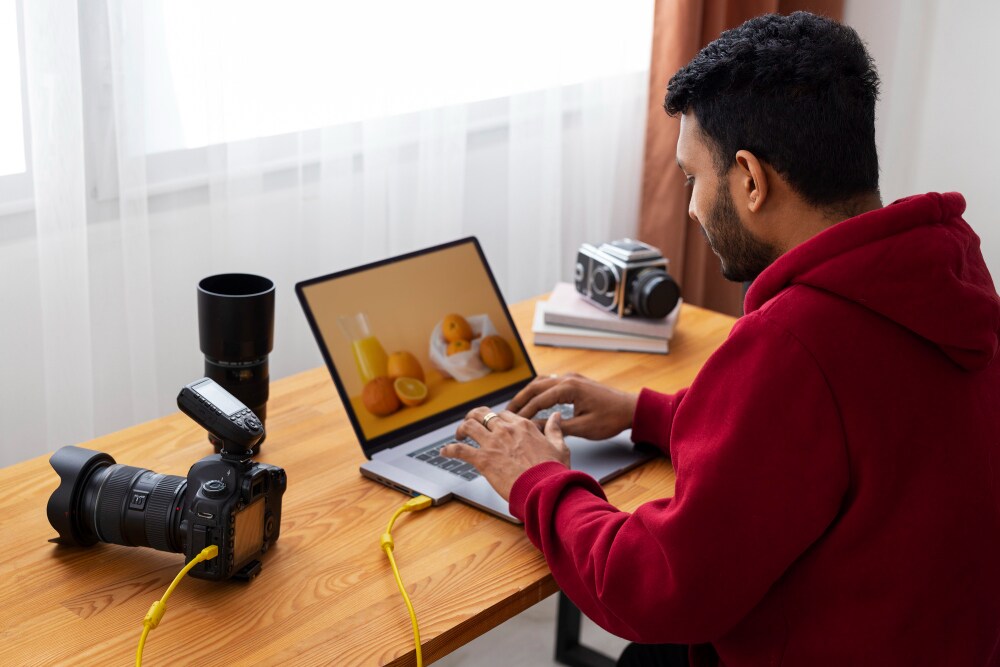
AI has changed the game when it comes to editing photos and videos. You can enhance your pictures, remove copyright from photos, and improve image resolution—making content creation faster and easier than ever.
But here’s the thing: just because you can use AI to remove copyright watermarks from image files doesn’t always mean you should. It is only appropriate when you have legal rights to do so. You must have;
- Purchased or licensed the image, and the watermark is there for preview purposes.
- Created the image yourself and accidentally (or intentionally) added a watermark.
- You received permission from the copyright owner to modify or repurpose the image.
Now, if you do have the rights, you can remove copyright watermarks using Filmora.
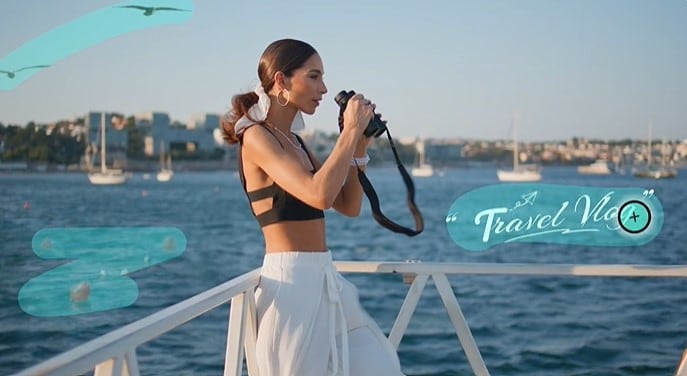
Filmora is a video and image editing software. It has become the go-to tool for AI-powered editing. AI Object Remover—one of its standout features—can detect and erase watermarks, logos, text, or even remove people from your pictures. More than this, it will automatically fill in the background to keep your image clean.
- Remove unwanted objects from videos & images in seconds.
- No manual masking—AI does the hard work for you.
- Preserve background quality with smart auto-fill.
- Works seamlessly on Windows, Mac, iOS & Android.

How to Remove Copyright Watermarks Using Filmora on Desktop
Follow these steps to remove copyright from your photos on a PC.


If you already have your photo on the dashboard and want to remove the watermark while editing, simply right-click on the image on the timeline and select AI Object Remover.
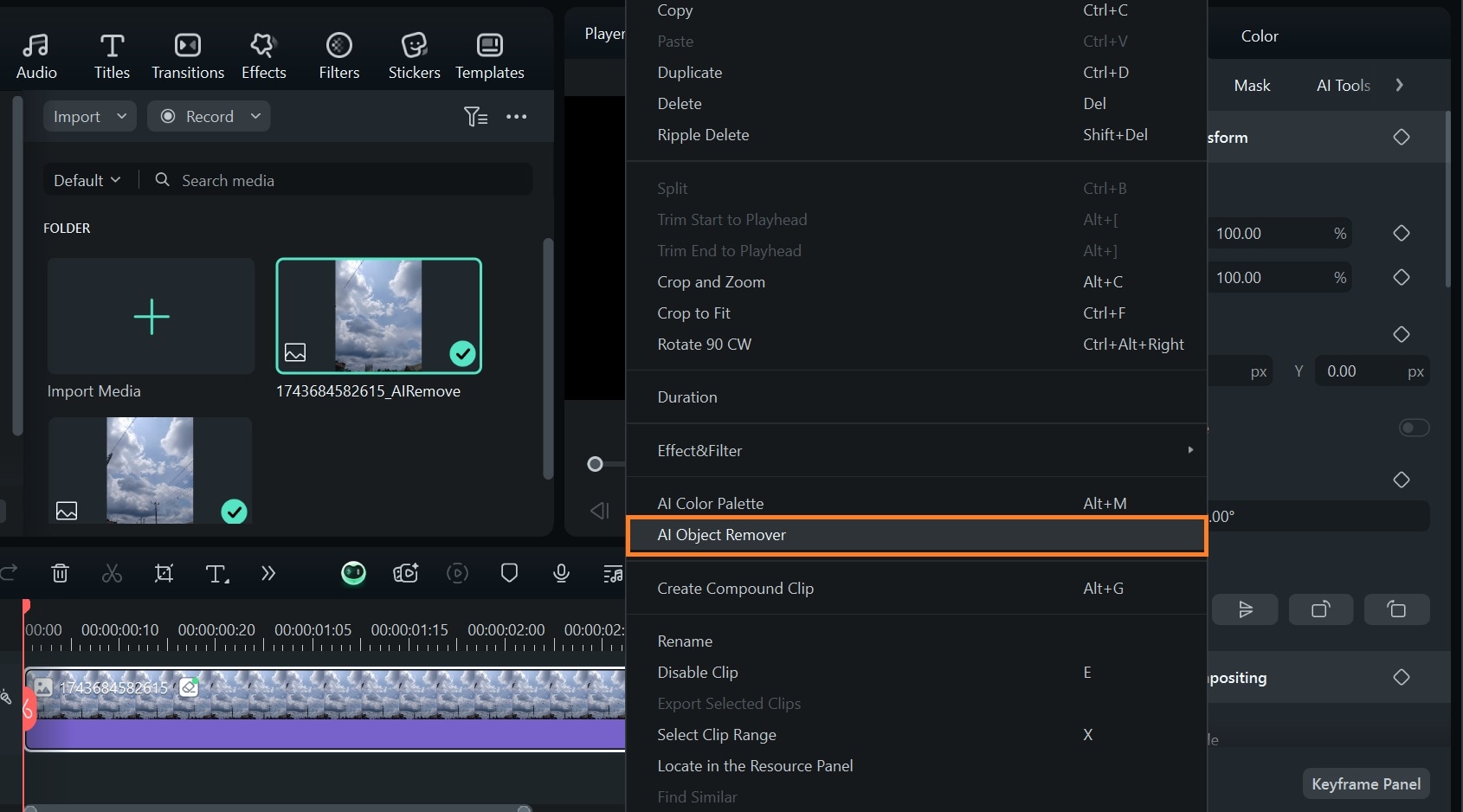
Your edited photo will automatically be updated on the editing dashboard.
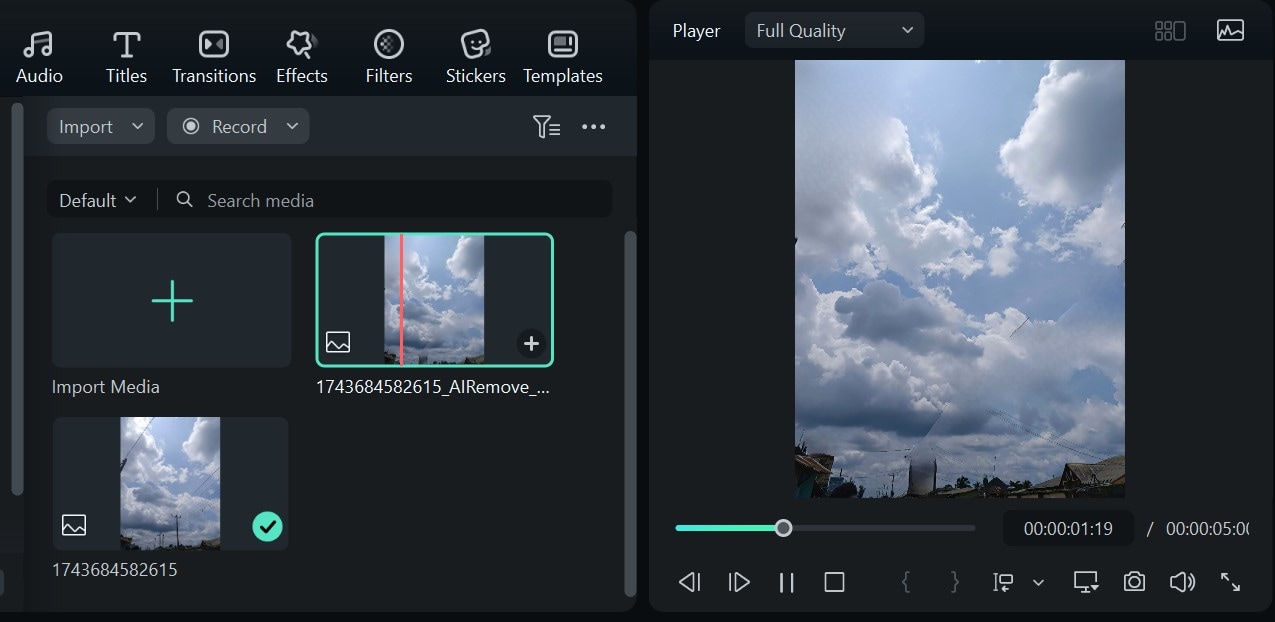
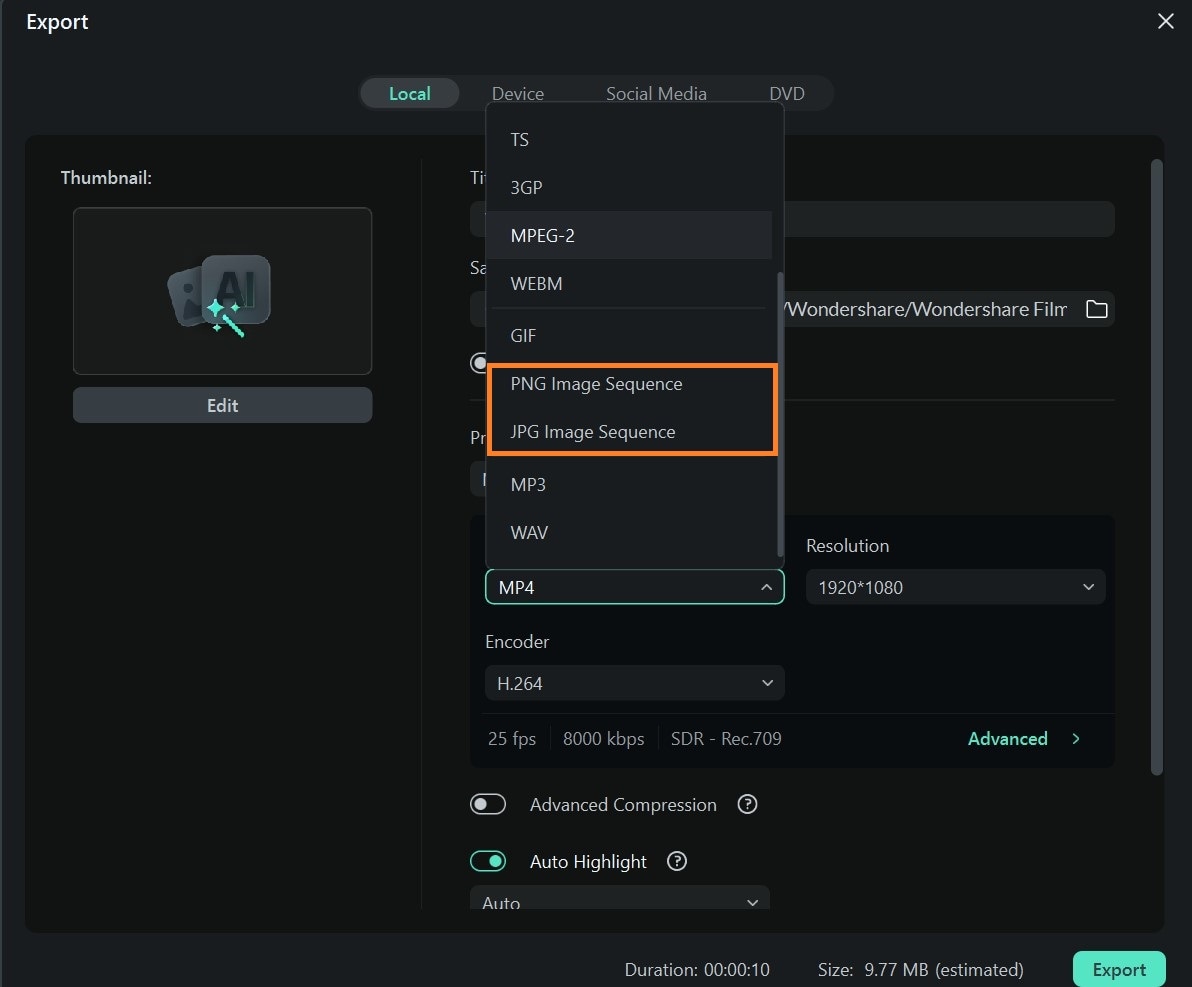
How ToRemove Copyright From PicturesUsing Filmora Mobile Version
Here's how to use Filmora to remove copyrights on your phone.
Image Title: remove-copyright-from-photo-12.jpg

Brush over the watermark with your finger. Once you’re done, click on Process Now.
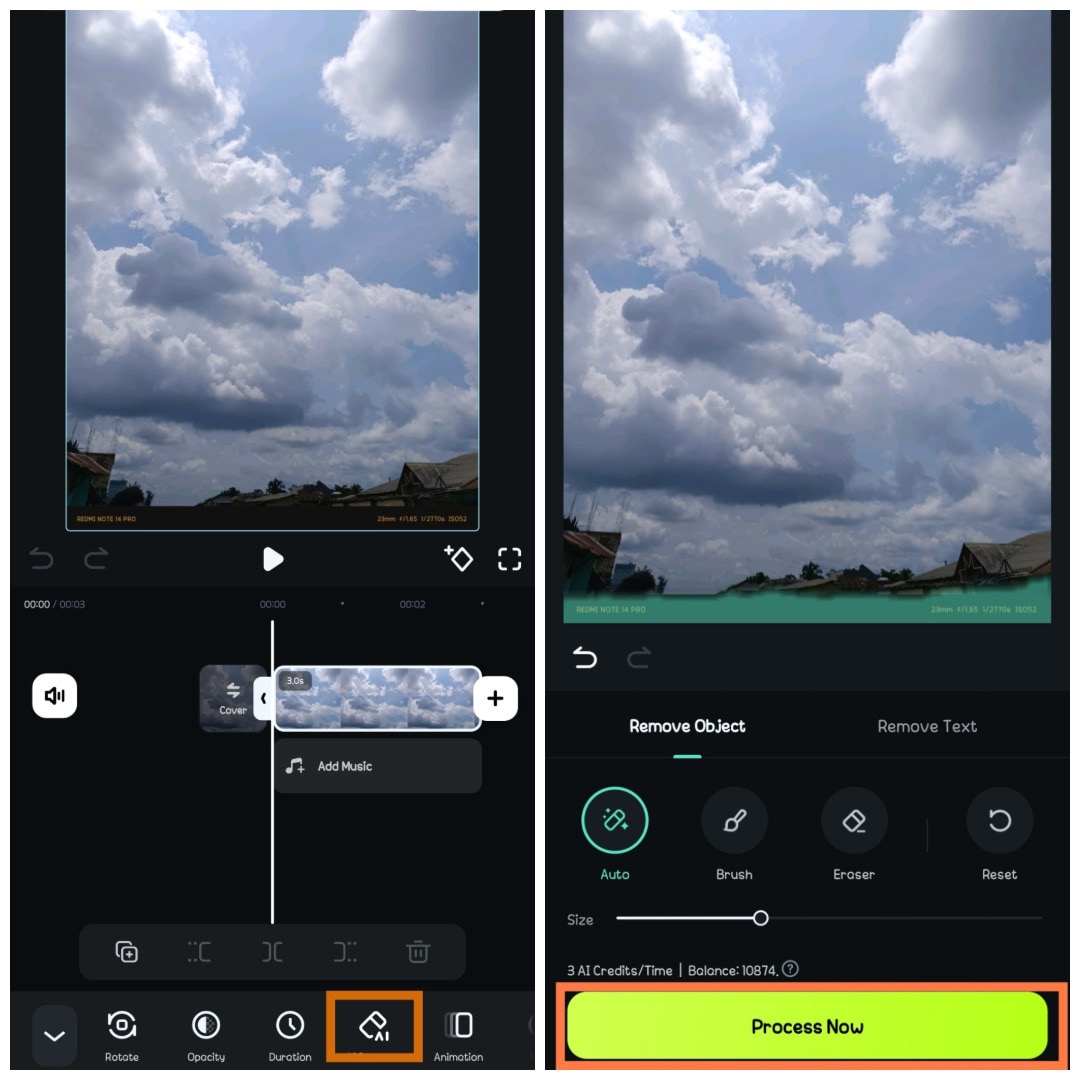
Filmora’s AI will remove all the highlighted objects and fill in the erased area to blend naturally with the surroundings.

Part 4: Important Tips for Using Images Without Copyright Concerns
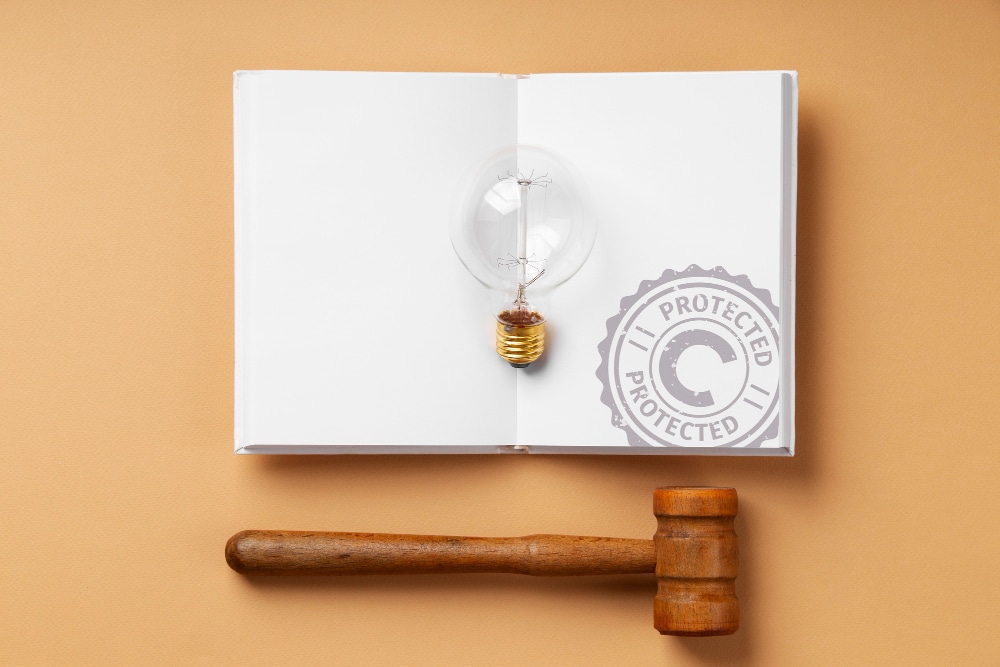
Even with all the right tools, it’s still easy to slip up when using images online. To avoid copyright issues, you need more than just access to stock libraries or permission to remove copyright from photo files. These practical tips will help you stay safe when sourcing visuals for your project.
- Always check usage rights before downloading an image
Whether you found it on Google, a blog, or a social media post, never assume it’s free to use. Click through to the original source and look for licensing details.
- Use search filters to find free-use images
Google Images, for example, allows you to filter results by usage rights. Just click Tools under the search bar and select Usage Rights to display images that are labeled for reuse.
- Give credit where it’s due
Even if an image is free to use, many licenses (especially Creative Commons) require attribution, that is, mentioning the creator’s name and linking back.
- Create your own visuals
Designing custom graphics, taking your own photos, or using tools like Filmora not only gives you full rights—it also makes your content stand out.
Conclusion
So, yes—AI tools can help you remove a copyright from a picture, but always make sure you’re using them responsibly. The goal isn’t to legally modify what you have the right to use and not to take what doesn’t belong to you.
If you have the necessary licensing & permission to modify your copyrighted images, Filmora is your best bet for a clean watermark removal. This editing software can help you make professional edits without crossing any legal lines.



 100% Security Verified | No Subscription Required | No Malware
100% Security Verified | No Subscription Required | No Malware


